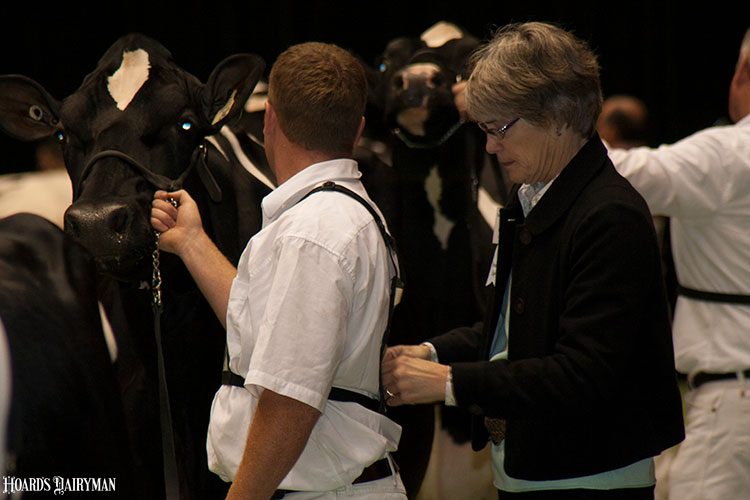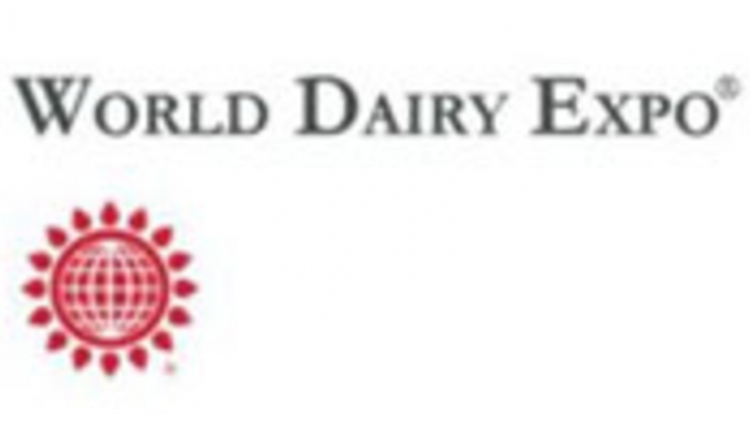
Some call Sheila McGuirk, D.V.M., the Mother Teresa of World Dairy Expo. It’s likely because the veterinarian has a distinct love for dairy cattle and their owners.
Our team recently interviewed Sheila McGuirk on her life experience at World Dairy Expo and serving the greater dairy industry. Click here to read the full feature, “The cows brought her to Madison.” Over the next five weeks leading up to World Dairy Expo, we will include bonus coverage with her.
Some have called you the “Mother Teresa” of World Dairy Expo, as some exhibitors bring cattle to the show just to have you examine them. Why do you care about cattle and, more importantly, their owners and caretakers so much?
Sheila: I am touched so deeply that people think of me that way. I don’t know why I’ve been drawn to cattle. I loved them as a child, and I was simply fascinated by cattle . . . particularly their personalities. I love them as patients. The people who have the cows are part of that picture, too.
It’s been one of your professional goals to engage veterinarians and producers in strategies that result in easy, accurate disease detection and effective treatment. How do you go about doing that?
Sheila: It starts with my background, shaped by growing up in a large family, because everyone had a role to play and a way to work together. We never wanted to add to somebody’s work, so we just helped and cooperated.
It’s this mindset of appreciation as a veterinarian in which I serve hardworking dairymen and dairywomen. As much as I could, I also needed to make sure that I was being a spokesperson for the animals.
At the same time, I was conscious and aware that I couldn’t add to the plates of the already-busy farmers. I wanted to stand up for the cattle, but I wanted to do it the best way I could. Feed them well, keep their environment excellent, and give them the best immunity possible.
Simplifying schemes for finding abnormals helps, as does addressing health problems as soon as possible. In this way, we could make a difference in animal health. The earlier we can find problems, the more likely we are to have a successful outcome. To sum up, I wanted to add tools to the toolbox without burdening caretakers with unnecessary work steps, expense, or hardship.
Your peers have said, “Sheila is very skilled in imparting what she is teaching without talking down to her intended audience, and she has the unique ability of making the ‘complex’ easy to understand.” How do you accomplish this feat?
Sheila: Honestly, I don’t know how to answer that question. I just see myself as one of the people with whom I work. I don’t see myself as any different. I try to make myself understood and respect how hard people work to get where they are in life.
It’s rare for me not to see the good in people and good intentions. That always puts me on my best game, because I want to be able to help where I can and impart knowledge.
I approach every day with the mantra, “I learn as much from the people I work with as they may learn from me.” Just being able to communicate and talk with one another is so important. I feel equal to and empowered by others. I just want to make myself useful and do good for the cows and the people who are affiliated with them.








